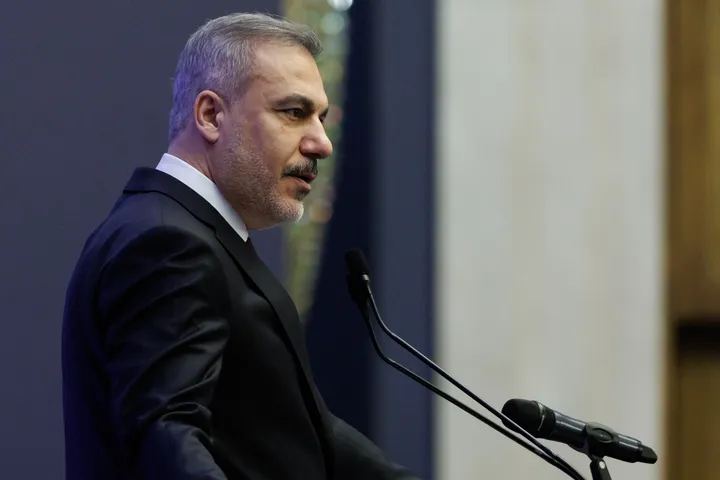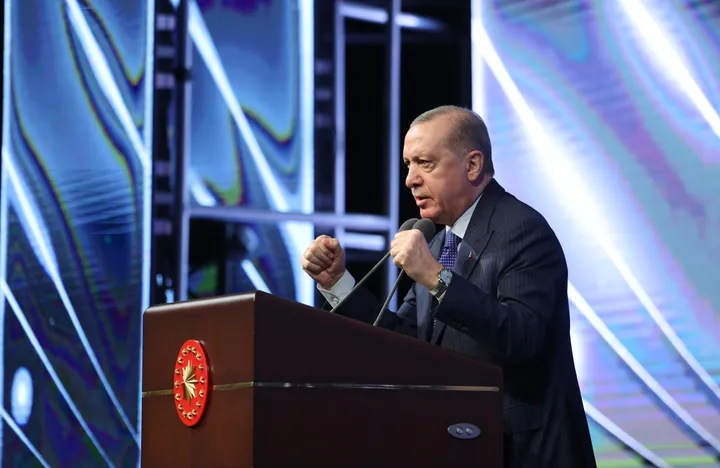The Syrian conflict has entered its eighth year. Since the beginning of the conflict, 6.6 million Syrians have been displaced internally and 5.6 million people have been scattered across its borders. From food insecurity to loss of educational access, lack of health services and high-rates of gender-based violence, the consequences of the crisis have been particularly brutal for women and girls.
Women serve to sustain the resilience of families and communities, trying to keep their families healthy, fed and together. In many cases, women have been forced to become the sole breadwinners overnight after losing husbands and fathers to the conflict.
Upon entering the Saricam Public Education Centre in Turkey's Adana province, Aliyah Shamsi* was the only woman sitting at one of the two dozen benches in an otherwise empty, white hall. She sat with a black veil cast over her head and her 10-month-old baby girl perched on the table in front of her playing with an old wrapper.
At the centre, women are trained in apparel and textiles. Aliyah is one of the workers who completed her training in textiles. The conflict forced her to fend for herself and her four children. “We left Syria because of the bombing. Bombing, bombing. It gets to the point where you can’t endure it anymore: planes and bombing. This person’s dead, and that person’s dead.”
Hasnaa Halabi*, another worker at the centre, fills the room with her charming, vibrant energy. Accompanied by her 10-year-old daughter who follows her shyly, Hasnaa lived in different camps in eastern Turkey for about five years before settling in Saricam. She mustered the courage to leave their home in Aleppo a year after her husband’s death.
“When I saw my husband and how he died, it shook me up. A bomb dropped and hit him. He had just gone out for a walk through the neighbourhood, he had not done anything wrong. I can’t explain it anymore,” she says, tears welling up in her eyes.
“They brought him to me and he was severely wounded, he didn’t even last till the evening before he passed away.”
"I was afraid, especially for my children. At the time, they were all very young,” she added.
Hasnaa never planned on leaving, until a bomb hit her neighbourhood.
“After the death of my husband, our house had no water, no electricity and no food, so what was I to do? No one wishes to be forced to leave their country. No one.”
A sense of disorientation and confusion flooded Hasnaa as she reached the Syrian-Turkish border Bab al Salam. She spent two days on the road to the nearest camp.
It's been nine months since she moved to Turkey's Adana province. At the training centre, she sews, cleans and makes tea and coffee for her colleagues.
“This is the first time I have ever worked in my life. It is difficult but I am getting used to it,” she said.
Women in refugee camps often depend on the men around them to provide for their families, however many women have lost their husbands and sons to the war and face challenges in finding work in addition to taking care of their children in foreign lands.
“Before, we were in Urfa. A lot of people there spoke Arabic, whereas here they only speak Turkish, so that was also an adjustment. But the people here are extremely kind, and I am so grateful. Now, I try my best to learn the Turkish language so I am able to communicate a little better.” Hasnaa says.
Refugees venture to overcome obstacles when it comes to raising their children in a new environment, and for Hasnaa it is no different. “One of the biggest challenges I face as a mother and a widow is fearing for the future of my children – not having security. Yes, we are here and safe in the camp, however my fear is having to fend and provide for my children outside the camp. It is too difficult. I won’t be able to afford to do anything.” Men often leave the camp to make an earning in the city granting households extra support, yet the women in the camp feel restricted and fear the intricacy of integration.
Aliyah, however, attributes her patience and resilience to her faith in God, as she says, “The only reason we are able to endure all of this and still be able to smile is because Allah gave us patience.”
Turkey hosts the largest number of refugees in the world, having received approximately 3.5 million Syrians. Access to health care, education and a small stipend are among the benefits that refugees acquire. They do not receive the many benefits that are offered in the EU, nevertheless, Turkey proves to be a better refuge for many than Europe.
Civil society groups and local governments in Turkey are implementing promising projects directed at integrating those of refugee status. “Turkey for us has been safety. Safety from fear, safety from devastation. We died in Syria, from grief. We came here, God bless the Turks, they helped us a lot. From clothing for my children, to food, etc.”, Aliyah says, the tone of gratitude clear in her voice.
She mostly works with bead embroidery; however, the strain on her eyes is beginning to impact her productivity. "Generally, the life of a widow is a difficult one, and even more so when that widow is in a war zone. I now have to play the role of mother, father, provider, everything.”
She hopes to build a peaceful and secure future for her four children, “Syria is gone, we have had to forget it," she says.
"I just want a home."
Note: The names in the story have been changed for security reasons.
























